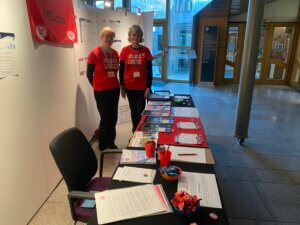Journalists Julie Rehmeyer and Dr. David Tuller have published an analysis concluding that the PACE trial failed to demonstrate the safety of graded exercise therapy, despite its authors claiming that it was a safe treatment for patients with chronic fatigue syndrome (CFS).
Their article, on Virology Blog, concludes that “the PACE researchers’ attempts to prove safety were as flawed as their attempts to prove efficacy” and that the study authors did not provide sufficient information to support their claims.
Rehmeyer and Tuller note that the experience of patients in the UK, where the therapy is commonly prescribed, indicates that graded exercise therapy (GET) can be “very, very bad”. They cite a survey conducted by the UK’s ME Assocation in 2015 in which 74% of patients who had tried GET said that it had made them worse.
However, Rehmeyer and Tuller point out that a randomised trial carries more weight than a survey and so safety should have been a central issue in PACE.
But, they say, “after the trial began, the researchers tightened their definition of harms, just as they had relaxed their methods of assessing improvement”. Also, they point out that therapists in the GET arm of the trial were instructed to tell patients to “consider increased symptoms as a natural response to increased activity”, which Rehmeyer and Tuller consider “a direct encouragement to downplay potential signals of physiological deterioration”.
They cite ME patient and published PACE-critic Tom Kindlon, who points out that the researchers abandoned the actometers — electronic activity-monitors — that they had planned to use to assess outcomes. He says that it is therefore impossible to know whether GET patients in the trial complied with the therapy and became more active, or whether they instead did more “exercise” at the expense of activities of daily living, as other GET studies using actometers with CFS patients have found.
“Clinicians or patients cannot take from this trial that it is safe to undertake graded exercise programs,” Kindlon told Rehmeyer and Tuller. “We simply do not know how much activity was performed by individual participants in this trial and under what circumstances; nor do we know what was the effect on those that did try to stick to the programs.”
Rehmeyer and Tuller also quote University of Columbia biostatistician Professor Bruce Levin, who said, “I would be very skeptical in recommending a blanket statement that GET is safe…. There is real difficulty interpreting these results.”

Support Keeping Telehealth – Take Action Today!
Expanded telehealth is set to expire at the end of this year, December 31st! Learn More #MEAction knows losing expanded telehealth will be a problem for many in our community and the wider disability community. Telemedicine increases access to care, improves health equity, and is more affordable than in-person care. We are asking you to




